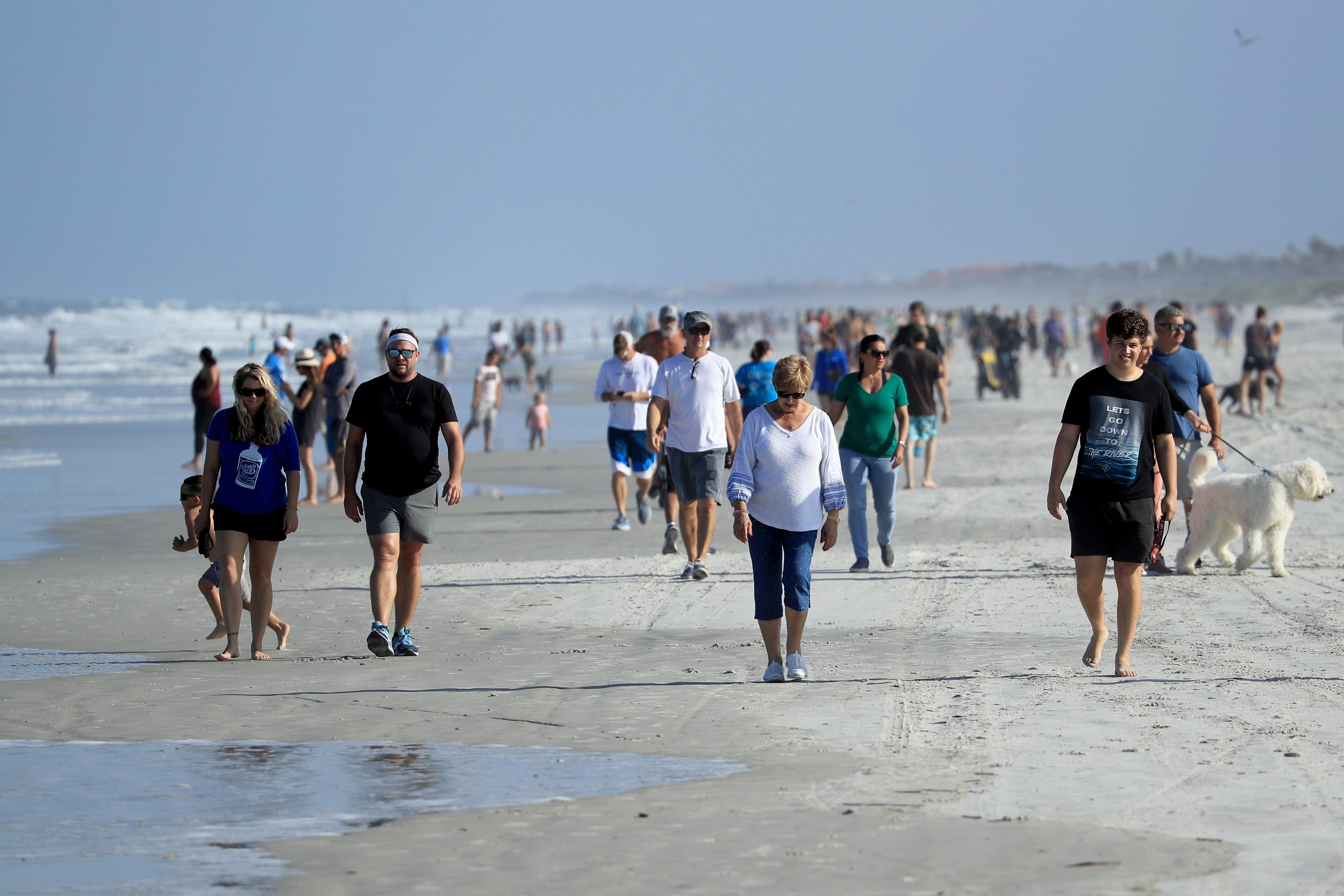Coronavirus: Thousands rush to beach in Florida as local mayor orders partial end to lockdown
Sunbathing and gathering in large groups are still banned
Your support helps us to tell the story
From reproductive rights to climate change to Big Tech, The Independent is on the ground when the story is developing. Whether it's investigating the financials of Elon Musk's pro-Trump PAC or producing our latest documentary, 'The A Word', which shines a light on the American women fighting for reproductive rights, we know how important it is to parse out the facts from the messaging.
At such a critical moment in US history, we need reporters on the ground. Your donation allows us to keep sending journalists to speak to both sides of the story.
The Independent is trusted by Americans across the entire political spectrum. And unlike many other quality news outlets, we choose not to lock Americans out of our reporting and analysis with paywalls. We believe quality journalism should be available to everyone, paid for by those who can afford it.
Your support makes all the difference.Thousands of people rushed to the beach in Jacksonville, Florida after the city’s mayor ordered a partial reopening of public spaces that were closed due to the coronavirus outbreak.
Thousands filled the sand on Friday evening following the order, with few showing signs of following guidance on social distancing.
Mayor Lenny Curry ordered the reopening in the mornings and evenings in what he said was the “beginning of the pathway back to normal life.”
“Please respect and follow these limitations. Stay within the guidelines for your safety as well as for the safety of your neighbors,” he said.
The beaches will be open from 6am to 11am and from 5pm to 8pm for “exercise only”, the city’s website said. Beachgoers will be allowed to swim and run, but will be banned from sunbathing, gathering in large groups and setting up chairs.
The order came after Donald Trump unveiled his administration’s plan to reopen the country in phases to bring the stumbling economy back to life. Some state governors have expressed concern that the plan would only work with mass testing — which the US is currently lacking.
Health officials in Florida have confirmed more than 23,000 Covid-19 cases in the state and at least 633 deaths.
Mr Curry said he could reverse his decision if the plan didn’t work.
“If for some reason it turns to helter-skelter, we’re going to pull the plug again,” he said on Friday.

Florida’s Republican governor Ron DeSantis was criticised for being slow to issue statewide stay-at-home orders as the virus was spreading around the country. Beaches remained open in the state through Spring Break, when students from around the country came to the state to celebrate the holiday.
Governor DeSantis had already expressed support for reopening some public spaces, and has played down the risk of transmission.
“You look at how this disease is transmitted, it’s transmitted overwhelmingly when you are in close, sustained contact with people, usually in an indoor environment,” Mr DeSantis said. “Going forward, we got to be promoting people to get exercise, do it in a good way, to do it in a safe way.”
The US currently has more than 700,000 confirmed cases of the coronavirus and some 37,000 deaths. Despite the high numbers, some hotspots such as New York have seen a plateau of hospitalisations over the past week.

Join our commenting forum
Join thought-provoking conversations, follow other Independent readers and see their replies
Comments